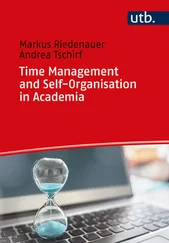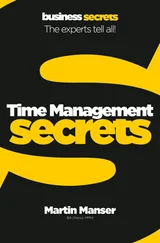Thomas Limoncelli - Time Management for System Administrators
Здесь есть возможность читать онлайн «Thomas Limoncelli - Time Management for System Administrators» весь текст электронной книги совершенно бесплатно (целиком полную версию без сокращений). В некоторых случаях можно слушать аудио, скачать через торрент в формате fb2 и присутствует краткое содержание. Жанр: Старинная литература, на английском языке. Описание произведения, (предисловие) а так же отзывы посетителей доступны на портале библиотеки ЛибКат.
- Название:Time Management for System Administrators
- Автор:
- Жанр:
- Год:неизвестен
- ISBN:нет данных
- Рейтинг книги:4 / 5. Голосов: 1
-
Избранное:Добавить в избранное
- Отзывы:
-
Ваша оценка:
- 80
- 1
- 2
- 3
- 4
- 5
Time Management for System Administrators: краткое содержание, описание и аннотация
Предлагаем к чтению аннотацию, описание, краткое содержание или предисловие (зависит от того, что написал сам автор книги «Time Management for System Administrators»). Если вы не нашли необходимую информацию о книге — напишите в комментариях, мы постараемся отыскать её.
Time Management for System Administrators — читать онлайн бесплатно полную книгу (весь текст) целиком
Ниже представлен текст книги, разбитый по страницам. Система сохранения места последней прочитанной страницы, позволяет с удобством читать онлайн бесплатно книгу «Time Management for System Administrators», без необходимости каждый раз заново искать на чём Вы остановились. Поставьте закладку, и сможете в любой момент перейти на страницу, на которой закончили чтение.
Интервал:
Закладка:
Inconsequential or low-priority tasks that can be skipped occasionally but shouldn't be. There are often tasks that can be skipped once and nothing bad will happen. However, skip them too many times and you're in trouble. This includes things like changing backup tapes, ordering supplies, and so on. Put "order supplies" (or whatever the task is) in your PDA/PAA repeating reminders list for every Monday. It's better to ignore the reminder when there's nothing to order (or do) than to forget to do it at all.
Developing new skills. Some people complain that they never have time for training. Others schedule one training class a year whether they know what it will be. It's never going to happen if you don't make it happen.
Keeping up-to-date. It is better to schedule one hour a week of "closed-door time" for magazine reading than to try to get caught up every few months. Throw out all unread magazines once a month—if you didn't get to it by the time the next issue arrives, you won't get to it. If you don't have an office with a door you can close, find some other space that is far away from walk-in traffic.
Meet Regularly with SPOC
When I was at Bell Labs, each system administrator served two to three groups of customers (we all supported the entire network, but each SA was supposed to focus on a particular customer segment). We were required to meet with the Single Point of Contact (SPOC) for each group, along with the department head (the person who paid the bills for that group).
It was difficult to get on the department heads' schedules, but they gave in when they were promised the meeting would be kept to 15 minutes and would always start on time.
The department heads found that it was revolutionary to actually be able to communicate their needs directly to the IT staff rather than playing cat-and-mouse games. They would often ask to extend the meeting beyond 15 minutes, or they would use the first 15 minutes to set goals, and the system administrator and SPOC would continue the meeting to work on the issues raised.
Some department heads resisted, saying that they delegated "all that kind of thing" to their SPOC. However, we found that without the person who paid the bills in the room, the meetings were not as effective. Eventually, we were successful at having regular meetings with every customer group SPOC and department head because our listening skills, and later actions, demonstrated the value of the meetings.
Deleting Old Routines
Sometimes you have to update your routines.
In the "gas tank" story, earlier in this chapter, I pointed out that eventually I forgot why I had started such a routine but I continued doing it. That sounds a little dangerous. Without knowing why I was doing something, is it right to keep doing it?
I guess it comes down to faith in myself. Since I created the routine, I know I have already settled any ethical dilemmas. And I'm talking about changing backup tapes and filling gas tanks, not life-or-death decisions.
I find that routines delete themselves by becoming obsolete. When I got a promotion and someone else took responsibility for changing the backup tapes, the routine I had developed expired on its own.
Routines also modify themselves and evolve. This isn't a Perl script that, if left unmodified, will fail after the files it affects have been migrated to a new server. This is you. You're human. You see things as they happen and adjust.
Of course, I try to be flexible. When someone challenges my adherence to a particular routine, I keep an open mind and listen to his concerns. Sometimes he is even right.
Summary
A good routine saves you work and reduces the amount of time you spend making decisions.
Routines give you a way to "think once, do many."
Develop the routine of always recording your appointments and to do items in your organizer and always having your organizer with you.
The more routines we develop, the less brainpower we have to put into small matters, and the more brain power we have to focus on the fun and creative parts of being a system administrator. Throughout your day, look for opportunities to create your own routines. Red flags for such opportunities include:
Repeated events that aren't scheduled
Maintenance tasks
Relationships and career networking
When procrastinating takes longer than the task
Things you forget often
Inconsequential or low-priority tasks that can be skipped occasionally but shouldn't be
Developing new skills
Keeping up-to-date
Schedule Reading Time
Never get caught up reading all those computer-industry magazines that come to your mailbox? Schedule a one-hour reading time each week. Find a place to hide, and read as much as you can. Throw out what you weren't able to read, which keeps your reading material fresh.
Chapter 4. The Cycle System
In 1997, I received an award for my political activism. In addition to my full-time system administration job and very active social life, I spent my spare time involved in four nonprofits, one of which I had been president of, another that I had founded. Someone asked me how I kept it all coordinated. I smiled and thanked them for the compliment, and politely held back from saying, "I'm a system administrator! I manage chaos for a living!"
The truth is that I had figured out how to keep track of the flood of requests and to do items that came my way without losing any of them. It's easy to look like you know what you're doing when you have good follow-through .
Your customers value your ability to follow through more than they value any other skill you have. Nothing ruins your reputation like agreeing to do something and forgetting to do it. The secret to perfect follow-through is to record all requests and track each request until completion. My key to perfect follow-though is a system I call The Cycle because it repeats every day, and the output of one day is the input to the next. Sort of like in grade-school science where you draw a circular diagram that shows how a frog starts life as an egg, becomes a tadpole, grows legs, turns into a froglet, becomes an adult frog, and gives birth to more eggs, which starts the cycle all over again. This system is just like that, except that each cycle is 24 hours, and you don't have to live in a pond.
The Cycle uses three tools: a combined to do list and today's schedule, a calendar, and a list of long-term life goals. Store all these tools in one place. The process is the same whether you use a PDA or an old-fashioned planner or organizer (PAA) that can be found in a stationery store.
Keeping all three databases in one place is important because:
The three databases interact with each other. You want to be able to easily flip between them.
It's easier to track the location of one thing rather than three things.
You need to keep the databases with you all the time, and it's easier to carry a bundle than it is to carry three individual items.
This chapter explains The Cycle System in general. Chapters 5, 6, and 7 will explain The Cycle System's parts: to do lists and schedules, the calendar, and life goals. These might be the most important chapters you read in your system administration career.

Figure 4-1.
Don't Trust Your Brain
System administrators in general are smart people. You're smart. I'm smart. We're all smart. We've achieved our stature through brainpower, not brawn. Sure, our good looks help, but deep down ours is a "brain" job. On average, people have a short-term memory capacity of seven items, plus or minus two. What about the average reader of this book? I bet you're closer to eight, nine, or, heck, you in the back row reading the comic book might be as high as ten (plus or minus three).
Читать дальшеИнтервал:
Закладка:
Похожие книги на «Time Management for System Administrators»
Представляем Вашему вниманию похожие книги на «Time Management for System Administrators» списком для выбора. Мы отобрали схожую по названию и смыслу литературу в надежде предоставить читателям больше вариантов отыскать новые, интересные, ещё непрочитанные произведения.
Обсуждение, отзывы о книге «Time Management for System Administrators» и просто собственные мнения читателей. Оставьте ваши комментарии, напишите, что Вы думаете о произведении, его смысле или главных героях. Укажите что конкретно понравилось, а что нет, и почему Вы так считаете.












